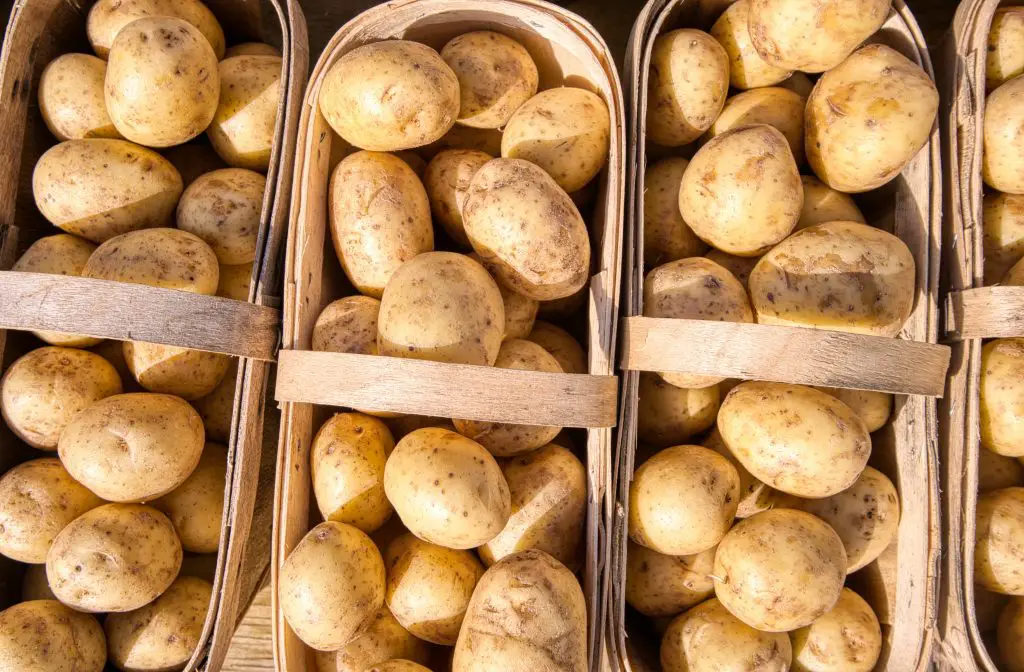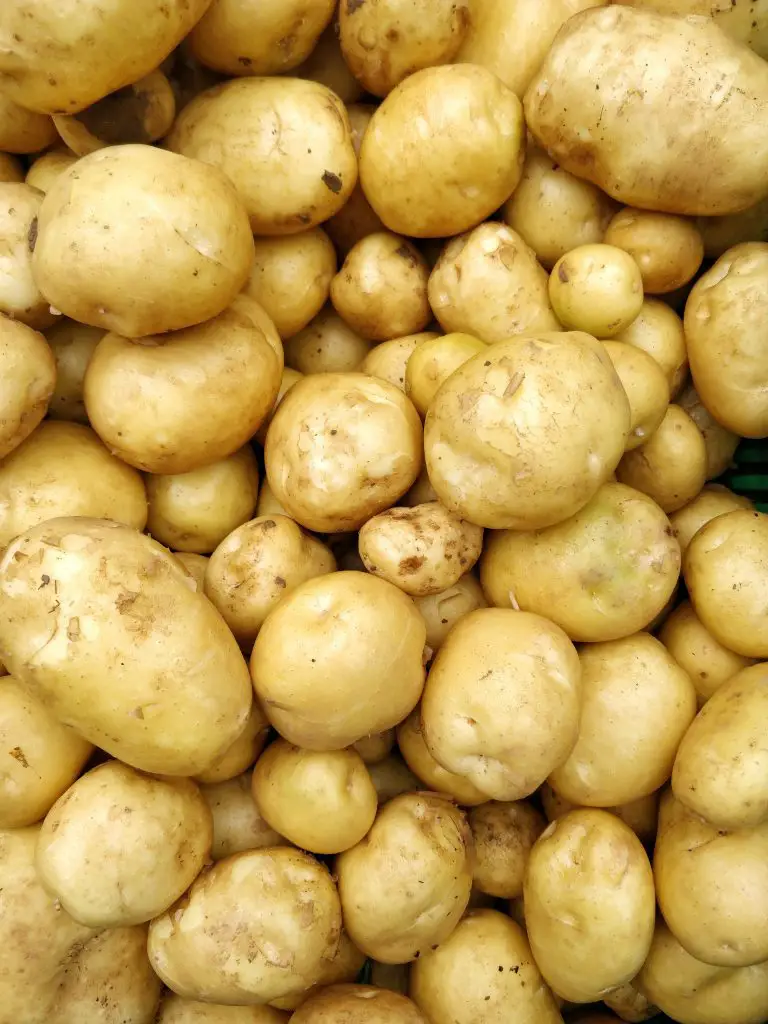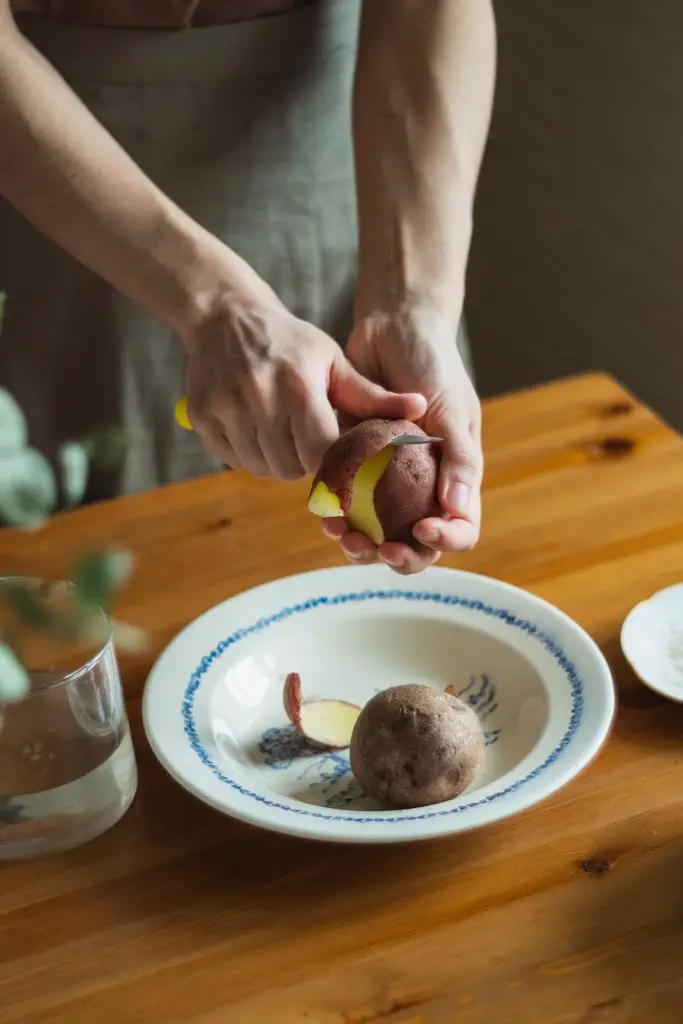What Happens If You Don’t Harvest Potatoes? Potatoes are one of the most popular vegetables to grow in the garden because they are easy to grow and they produce masses of tubers over an extended period of time. However, some home gardeners will get too busy with family life to be able to harvest some of the potatoes that they have planted. So what happens if you do not harvest your potatoes?
If your potato crop is not harvested and remains in the ground it will begin to shoot when the weather warms up in the following spring. However, one of the problems associated with this happening is that potatoes will be extremely crowded and it may require you to intervene in your garden by digging up at least some of the potatoes that have sprouted the following year.
Additionally, the other problem associated with leaving the potatoes in the ground is that you do increase the risk of disease and the harvest of potatoes also becomes more difficult because you will have both new and old potatoes present in the ground.
The presence of two years worth of potato crops in the ground will result in the tubers is pushing up to the surface of the soil and becoming exposed to light. This is problematic because exposing tubers to light result in them turning green which will make them poisonous.

Can You Leave Potatoes In The Ground Too Long?
Potatoes are relatively for giving plants in that you can leave the tubers in the ground after the plant has died back for some like the time. However, you cannot leave them in the ground indefinitely and still expect to be able to eat them.
When I have done that in the past I found that the older potatoes can develop a texture within the potato that is tough and becomes increasingly tough and inedible. As such it is generally recommended that you harvest the potatoes after the plant dies.
The potatoes can be stored for several months in potato sacks or even in a traditional potato clamp in the garden if you don’t have space. For those gardeners that have never heard of a potato clamp, it is basically when potatoes are dug up and placed on top of straw. Additional straw is then placed on top of the potatoes before adding a layer of dirt creating a mount. This is a method that has been used in the victorian era and will allow you to store your potatoes for months on end in your garden without having problems with rotting.

What To Do With Old Potatoes That Have Been In The Ground Too Long?
If your potato crop has reached the point at which you can no longer eat them and you need to get them out of the ground the question is what can you do with them. One option is to compost them however you do need to shred them to ensure that there are no large chunks of tuber present in your compost. The reason for this is that if there is a large chunk of potato in your compost it will start to grow leading to you having potatoes popping up anywhere that you have placed the compost.
If you are not prepared to spend the time cutting up the potatoes either by putting them through a shredder or running them over with a mower I would advise to place them into your local green bin to avoid having the problem picking up potatoes all over your garden. If you want to read more about how to compost potatoes click here.
Can You Use Your Old Potatoes To Produce A New Crop?
Your old crop of potatoes will be able to grow if they are replanted into the garden, however, there is some risk associated with doing this because of disease which can be extremely difficult to eradicate once it occurs.
When you purchase seed potatoes from your local garden centre what you are actually purchasing is just a regular potato that can grow like any other, however, this potato has been tested for a range of common diseases which are known to cause serious problems. The additional money you pay for potatoes essentially provides peace of mind that you will not contaminate your garden.

However, if you really want to give the potatoes ago there a couple of things that you can do to reduce the chances of having problems. The most low risk method is to simply use the potatoes in grow bags which will keep the soil completely separated from the remainder of your garden eliminate any chance of having a problem.
The other option is to plant the potatoes into a location where there have been no potatoes grown previously as this will reduce the chances of you having a problem in your garden as there is no opportunity for disease to buildup in successive seasons.
I hope you found is article useful and you have great success growing potatoes in your garden home. If you have any additional questions or comments please leave them in the section below.
Relevant Articles
Can You Plant Seed Potatoes In The Fall?
How Late Can You Plant Potatoes? (And How To Maximize The Yield)
How Much Sun Do Potatoes Need? Does The Yield Fall In Shade?
Can I Plant Store Bought Potatoes?
